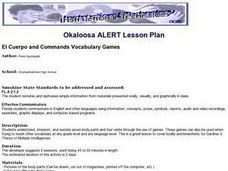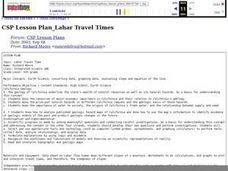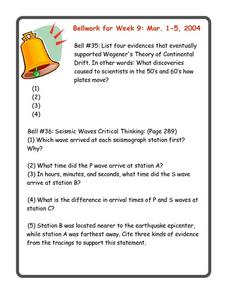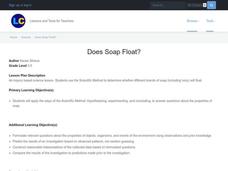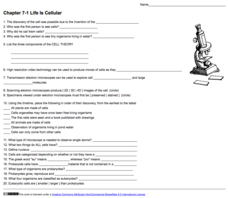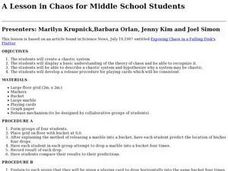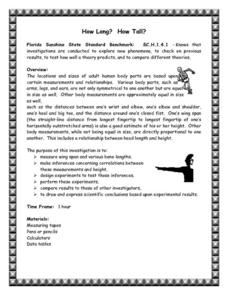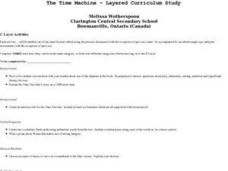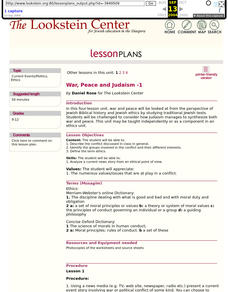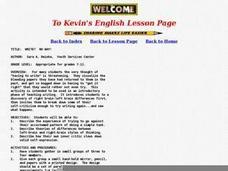Curated OER
El Cuerpo and Commands Vocabulary Games
Young scholars study Spanish vocabulary words for body parts, and also study a number of action verbs. They participate in Total Physical Response by responding to teacher given commands. They play a number of games based on the vocabulary.
Curated OER
Lahar Travel Time
Ninth graders analyze published geologic hazard maps of California and comprehend how to use the map's information to identify evidence of geologic events of the past and present and predict geologic changes in the future. They select...
Curated OER
Bellwork for Week 9-Earthquakes and Continental Drift
In this earthquake and continental drift worksheet, learners answer five questions about continental drift, seismic waves and earthquake safety.
Curated OER
Using the Senses as a Means of Observation
Students use their senses in various situations to determine their accuracy. In this senses activity, students use different senses to explore common objects. They find that their senses are not always accurate.
Curated OER
Who Was Hippocrates?
In this Hippocrates worksheet, students study and learn facts about the contribution of Hippocrates to medicine. After reading the one page text, students may answer 4 essay questions.
Curated OER
Who Am I?
Learners explore study different mathematicians. For this mathematician lesson, students research twelve mathematicians. Learners question one another to guess who their mathematician is. Students create a timeline of big events in math.
Curated OER
Floating Soap
Students use the Scientific Method steps to complete an experiment on various brands of soap to determine their floating capabilities. For this scientific method lesson, students write a hypothesis about the ability of various soap bars...
Curated OER
Using the Scientific Method
Students practice using the scientific method. In this scientific processes lesson, students read and discuss the main parts of the scientific method. Students plan how they would conduct an experiment using the scientific method.
Curated OER
The Great Society and A Thousand Points of Lights
Learners compare 2 preseidental speeches. In this presidential agenda lesson, students compare and contrast a Lyndon B. Johnson speech with a George H. W. Bush Speech.
Biology Corner
Life is Cellular
For this cells learning exercise, students answer questions about the first person to see a cell as well as the evolution of microscopes. They define the parts of a cell and tell the differences between Prokaryotes and Eukaryotes. There...
Curated OER
A Lesson in Chaos for Middle School Students
Students create a chaotic system. They display a basic knowledge of the system and are able to recognize it. The students form a hypothesis about a chaotic system and theorize the cause and effect.
Curated OER
Barnacles: Harder than Cement
Fourth graders watch the movements of the complex animal hidden inside the tiny barnacle shells. This lesson allows students to study the behavior, adaptation, and larval stage of the barnacle.
Curated OER
How Long? How Tall?
Seventh graders investigate the parts of the human body and examine the symmetry of body parts like arms and legs. They measure the body parts and take individual height and weight to compare the quantities. Student examine whether the...
Curated OER
The Time Machine - Layered Curriculum Study
Pupils complete three activities of their choice from a given list surrounding their study of H.G. Wells' novel, The Time Machine. They choose activities from each of the seven learning styles.
Curated OER
Simple Machines
Fifth graders study how simple machines can help us alter forces and discuss the term mechanical advantage. They then identify dysfunctional simple machines and discuss in groups how the dysfunctions will decrease the effectiveness of each.
Curated OER
War, Peace and Judaism 1
Students describe the conflict discussed in class, identify the groups involved in the conflict and their various interests, and define the term ethics. They analyze a current news story from an ethical point of view.
Curated OER
WRITE? NO WAY!
Students discover the right brain-left brain differences and then think about how to break down some of their self-criticism to try writing.
Curated OER
Blending Fiction and Nonfiction to Improve Comprehension and Writing Skills
Students explore a content area by reading both fiction and nonfiction texts on the topic. They do more research online about the topic. After comparing the texts, they create their own written original work, using both narrative and...
Curated OER
Word Wizards: Students Making Words
Learners explore patterns in words and how to make new words by adding or changing the sequence of letters
Curated OER
NOAA Research Project
Students research any topic relating to the National Oceanic and Atmospheric Administration (NOAA) research cruise that Mrs. Richards be participating in.
Curated OER
Texture Towns
Students explore different kinds of communities as well as identifying and discussing the attributes of their own neighborhood. They make choices about what kinds of shapes best create the look of the type of community they wish to...
Curated OER
Field of Dreams
Young scholars study several of Marc Chagall's paintings with an emphasis on his use of symbolic color and of space. They explore learn basic techniques for using Scholar colored pencils, and create an artwork using a baseball theme.
Curated OER
Golden Stars?
Students explore the possibility that all the gold on Earth came from another source. Discussions of how the materials arrived and its source forms the basis of data used to play a review game.
Curated OER
Mapping Your Local Community
First graders take a walking tour of their community to discover the names of numbered locations on a premade map. They then, create their own map of the community on the computer using Kidspiration software.


